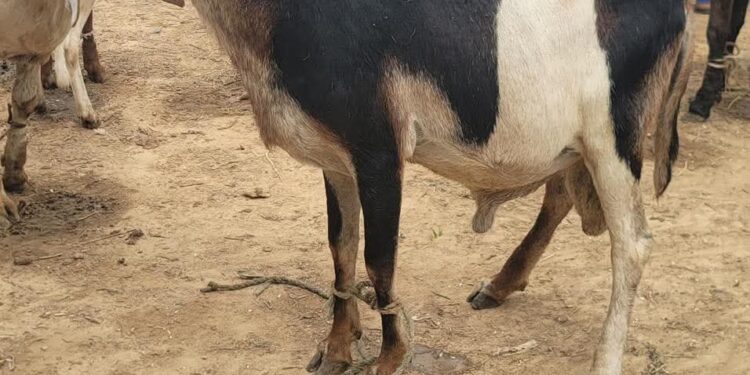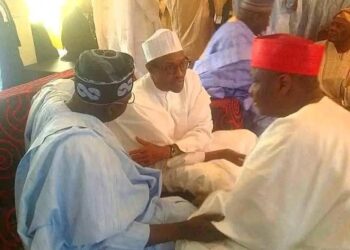
As the sun dipped below the horizon in Lagos, marking another long day in the countdown to Eid al-Adha, 23-year-old Yusuf AKanbi stood at the local ram market in Agege, bargaining for a modest animal. In his hand wasn’t a smartphone—just a crumpled receipt. A week earlier, he sold his prized Infinix phone to gather enough money for the ritual sacrifice.
“It was a tough decision,” Yusuf said, shifting his weight in dusty slippers. “But I’d rather be part of the sacrifice this year than watch others celebrate while I do nothing.”
In Nigeria, where inflation and unemployment have tightened the grip on the average citizen, many Muslims are making profound sacrifices ahead of the Eid celebration slated for next week. The cost of rams, goats, and cows—traditionally used for the religious sacrifice—has surged due to insecurity in northern markets, high transportation costs, and the naira’s instability.
The Ram Market Reality
At the popular Kara market along the Lagos-Ibadan Expressway, vendors admit this year is different.
“We used to sell medium-sized rams for ₦150,000 last year. Now, even a small one starts at ₦300,000,” said Alhaji Musa Adamu, a livestock trader from Katsina. “Many customers come, but only few can buy. Some even ask for payment in installments.”
Despite the biting economic situation, the religious significance of Eid al-Adha—commemorating Prophet Ibrahim’s willingness to sacrifice his son in obedience to Allah—compels many Muslims to find a way.
READ ALSO:Bold Moves, Bitter Pills: Tinubu’s Two Years of Tough Love for Nigeria
Creative and Costly Sacrifices
Some have turned to creative solutions. In Oyo State, a group of three young friends pooled money to jointly buy a cow. “We split the cost and the meat,” said Zainab Ibrahim, a student at University of Ibadan. “It still counts as a valid sacrifice, and it saves money.”
But others, like Yusuf, take more drastic steps.
“I used my phone to do freelance jobs and social media, but I can’t watch my mother cry this Eid because we didn’t perform the sacrifice,” he said. “I’ll find another way to earn.”
His story isn’t unique. Across Nigeria, reports have surfaced of people selling televisions, withdrawing savings, and even borrowing funds to uphold what they see as both a religious obligation and a cultural expectation.
Religious Guidance Amid Hardship
Islamic scholars, however, emphasize that the sacrifice is not compulsory for those who cannot afford it.
“Allah does not burden a soul beyond its capacity,” said Sheikh Abdullahi Musa, an Islamic cleric in Ilorin. “If a Muslim genuinely cannot afford the sacrifice, it is not sinful. What matters most is the intention and piety.”
Still, for many, the social pressure of Eid is heavy. In some communities, not participating in the sacrifice is seen as a sign of financial weakness.
Hope, Despite the Odds
Despite economic odds, the spirit of Eid still thrives. From tailoring new clothes with leftover fabric to making shared meals in communal pots, many Nigerians are finding a way to hold onto joy and generosity.
“Eid is not just about slaughtering an animal,” Zainab added. “It’s about remembering the meaning of sacrifice, sharing what you have, and thanking God for life.”
READ ALSO:Horror in Gaza: Dozens Burned Alive as Israeli Airstrikes Hit Al-Jarjawi School (Photo+Video)
As the countdown to Eid continues, Yusuf smiles faintly as he leads his newly acquired ram through the bustling market, not with regret, but with quiet dignity.
















